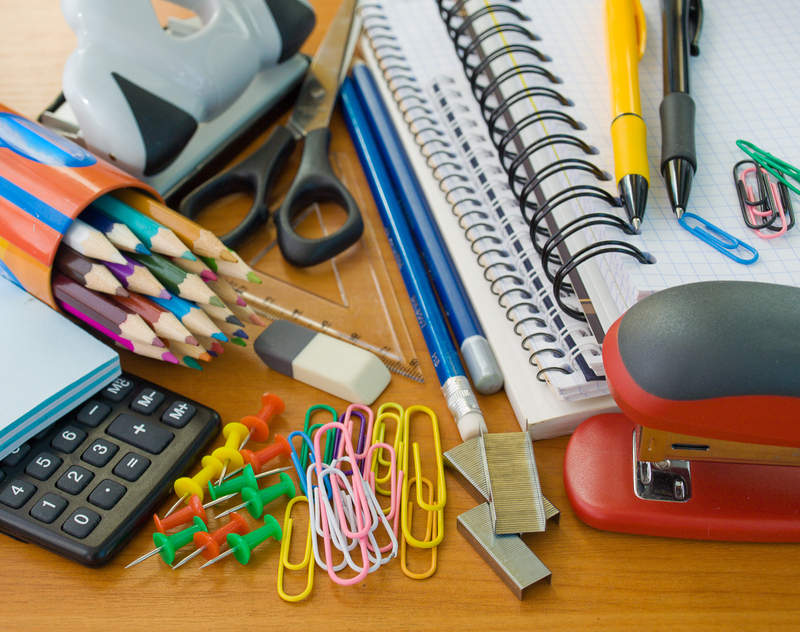Compassionate Help for Hoarder Clean Up and Clutter Solutions
Hoarding disorder is a complex and often misunderstood condition that affects millions of people worldwide. For individuals suffering from hoarding tendencies, the accumulation of items and clutter in their living spaces can quickly become overwhelming. Moreover, the clean up process--if not handled with care and sensitivity--can be traumatic. That's why compassionate help for hoarder clean up and clutter solutions is essential. This article explores tailored strategies, emotional support, and professional resources to address hoarding while promoting respect, dignity, and lasting results.

Understanding Hoarding: More than Just a Mess
Before diving into hoarder clean up solutions, it's crucial to understand what hoarding entails. Hoarding is not just about excess possessions--it's a psychological condition often linked to anxiety, depression, and trauma. People who hoard struggle with discarding items, even those with little or no value, due to significant emotional attachment, perceived need, or fear of scarcity.
- Hoarding disorder affects an estimated 2-6% of the population.
- It can lead to unsafe living conditions, social isolation, and health hazards.
- Treating hoarding requires a nonjudgmental, patient, and empathetic approach.
Complications of Hoarding
- Fire and tripping hazards due to blocked exits and cluttered walkways.
- Mold, pest infestation, and unsanitary conditions.
- Increased risk of eviction or legal action.
- Emotional distress, anxiety, depression, and strained relationships.
Why Compassionate Hoarder Clean Up is Crucial
A successful hoarder clean up is never just about removing clutter. It's about respecting the individual's feelings, understanding their challenges, and working collaboratively towards a healthier environment. Here's why compassion is paramount in clutter clean up:
- Minimizes trauma by respecting the person's attachment to belongings.
- Builds trust and cooperation rather than resistance or shame.
- Empowers hoarders to make meaningful, lasting changes in their lives.
- Reduces the risk of relapse and promotes ongoing management of clutter.
The Dangers of a Rushed or Forceful Approach
A forced or unempathetic clean up can exacerbate trauma, cause further anxiety, and even worsen hoarding behaviors. That's why professional hoarder clean up services and support networks rely on trauma-informed, patient, and judgment-free methods.
The Process: Steps for Compassionate Hoarder Clean Up
1. Initial Assessment and Planning
- Start with a thorough assessment of the space and the individual's readiness.
- Identify immediate safety risks (blocked exits, fire hazards).
- Set realistic goals and a step-by-step plan that prioritizes safety and emotional wellbeing.
- Engage the person in planning to foster a sense of control.
2. Building a Supportive Team
Successful clutter solutions often involve a multidisciplinary team that may include:
- Professional organizers trained in hoarding clean up.
- Therapists or counselors specializing in hoarding disorder.
- Trusted family, friends, or peer support groups.
- Specialized cleaning companies experienced in hazardous situations.
3. Sorting and Decision-Making
- Work side-by-side with the hoarder, respecting their pace and input.
- Use sorting categories: keep, donate, sell, recycle, discard.
- Celebrate small victories--even a single bag removed is progress.
4. Responsible Disposal and Organization
Proper disposal is key. Take care to:
- Arrange for bulk trash pickup, hazardous waste removal, or donation pickups as needed.
- Handle sensitive items (documents, heirlooms) with extra care and confidentiality.
- Set up practical organizing systems--shelves, bins, and clear labels.
5. Emotional Recovery and Support
Addressing the emotional aspect is just as important as cleaning itself. Consider:
- Ongoing counseling or therapeutic support.
- Family education about hoarding disorder.
- Maintenance routines to prevent relapse.
- Connecting with support groups for ongoing encouragement.
Professional Hoarder Clean Up Services: What to Expect
When clutter and hoarding become overwhelming, professional clean up companies can provide skilled and compassionate help. Here's what sets reputable services apart:
Specialized Training
- Experts are trained in trauma-informed care, confidentiality, and sensitivity.
- They follow guidelines to minimize emotional distress and maximize safety.
Full-Service Solutions
- Assessment, sorting, deep cleaning, and even minor repairs.
- Biohazard clean up if there are unsanitary conditions.
- Coordination with mental health professionals for integrated support.
Customizable Plans
- Flexible, tailored to the specific needs of the hoarder and their family.
- Options for follow-up visits or periodic check-ins to support maintenance.
Effective Clutter Solutions for Lasting Change
Clutter is not always due to hoarding disorder. Many people struggle to keep their homes organized and free from excess belongings. Whether you're facing mild clutter or severe hoarding, these solutions can help restore order and peace of mind:
Practical Strategies for Reducing Clutter
- Declutter by category--clothes, books, papers, sentimental items, miscellaneous.
- Apply the "one in, one out" rule to prevent accumulation.
- Set regular clutter-clearing routines--even 10 minutes a day can make a difference.
- Use storage solutions like shelves, bins, and closet organizers.
- Donate or sell unused but useful items to benefit others.
- Digitize documents and photos to cut down on paper clutter.
Mindful Consumption and Organization
Adopt mindful buying habits to prevent future clutter:
- Pause and consider if an item is truly needed before purchase.
- Prioritize quality over quantity--fewer, better things lead to less clutter.
- Organize spaces for function and flow, not just appearance.
Maintenance and Relapse Prevention
- Schedule regular "clutter audits" to assess hotspots.
- Enlist accountability from a friend or organizer if needed.
- Practice self-compassion--progress, not perfection, is the goal.
The Role of Therapy and Support Groups
For individuals with hoarding disorder, therapy is often a cornerstone of recovery. Cognitive-behavioral therapy (CBT) has been shown to be especially effective for managing hoarding behaviors and underlying triggers. Support groups--and sometimes peer coaches--offer empathy and practical advice from those who have faced similar challenges.
- Find local or online support groups through organizations like the International OCD Foundation.
- Family therapy can bridge communication gaps and foster understanding.
- Support is critical for long-term clutter solutions and emotional resilience.
How To Talk to a Loved One About Hoarding
Conversations about excessive clutter or hoarding can be difficult. The key is approaching the topic with care, understanding, and patience. Here are some tips for effective, compassionate communication:
- Avoid blame or shame--focus on safety and wellbeing, not judgment.
- Listen actively, validate emotions, and respect boundaries.
- Offer gentle encouragement and support for seeking help.
- Provide resources, suggest professional assistance, but never coerce or force action.
Remember: change takes time. Even small steps should be recognized and celebrated.
When to Seek Professional Help
If you or a loved one experiences any of the following, it may be time to seek expert help for hoarder clean up and clutter solutions:
- Clutter blocks exits, vents, or creates fire hazards.
- Obvious mold, pest, or sanitation issues are present.
- There is risk of eviction, legal action, or social services involvement.
- Emotional distress, anxiety, or hopelessness about clutter is overwhelming.
An experienced hoarding cleanup specialist will provide both efficient clutter removal and compassionate support for emotional recovery.
FAQs On Compassionate Hoarder Clean Up and Clutter Solutions
- What makes hoarder clean up different from regular cleaning?
Hoarder clean up addresses emotional and psychological needs, not just physical mess. It requires a sensitive, respectful, and patient approach coupled with practical strategies for lasting order. - Can friends and family help with hoarder clean up?
Yes, loved ones can play a supportive role, but training, patience, and guidance are often needed to avoid unintentional harm or trauma. - How long does the process usually take?
Every situation is unique. Some clean ups take days; others may require weeks or months. Progress is typically made one step at a time. - Is relapse common after a clean up?
Relapse can occur. Ongoing support, therapy, and maintenance routines greatly reduce the risk and help individuals sustain progress.

Resources for Hoarder Clean Up and Clutter Solutions
- International OCD Foundation: Hoarding Resources
- Help for Hoarding
- CHADD: Hoarding Disorder
- Local professional organizers experienced in hoarder clean up solutions
- Support groups and licensed mental health professionals
Conclusion: Bringing Hope Through Compassionate Support
Hoarding is a challenging journey, but with compassionate help for hoarder clean up and clutter solutions, recovery and a healthier home are attainable. Whether you're seeking gentle support for yourself or a loved one, know that you don't have to face this alone. Combining practical clean up strategies, ongoing emotional support, and professional expertise creates the path to lasting change--one caring, respectful step at a time.
Are you or a loved one struggling with excessive clutter or hoarder tendencies? Reach out for compassionate, expert help and take the first step towards reclaiming comfort, safety, and joy in your living space.
